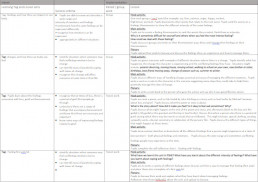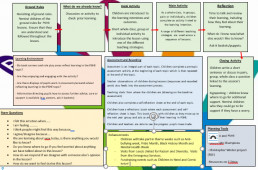PSHE
Our Intent
National Curriculum Guidance
Personal, Social, Health and Economic (PSHE) education is a school subject through which pupils develop the knowledge, skills and attributes they need to manage their lives, now and in the future. It helps children and young people to stay healthy and safe, while preparing them to make the most of life and work. When taught well, PSHE education also helps pupils to achieve their academic potential. The Planning Framework is organised into six sections: and is fully aligned with the Statutory Guidance for Relationships Education, Relationships and Sex Education (RSE) and Health Education from the Department for Education (DfE)
-
- Self-awareness
- Self-care, support and safety
- Managing feelings
- Changing and growing
- Healthy lifestyles
- The world I live in
Our intent is that the teaching of PSHE will:
- Be at the core of what we do and enables our children to flourish in order to become independent, confident, healthy and responsible members of society, as well as developing the “whole child” intellectually, morally, socially and spiritually.
- Allow children leave St Oswald’s, with the knowledge, understanding and emotions to be able to play an active, positive and successful role in today’s diverse society.
- Weaving through the heart of our PSHE teaching, is a commitment to enhancing and promoting our core Christian Values
- Teach knowledge and skills as well as values of citizenships in order to keep themselves healthy and safe as they prepare for life and work in Modern Britain and the global community
- Will inspire become healthy, independent and responsible members of a society who understand how they are developing personally and socially, and give them confidence to tackle many of the moral, social and cultural issues that are part of growing up
- All pupils will experience Forest School. Forest school promotes the holistic development of pupils, fostering resilience, confidence, independence and creativity in the outdoor world as the children learn about the natural world and how to look after it. Forest School also promotes environmental awareness.
- To support our pupils’ social and emotional wellbeing we use the Thrive Approach which a dynamic, developmental and trauma-sensitive approach to meet their mental health needs.
Our Implementation
The key areas of implementation we use are:
- Planning documents
- Progression map
- Long Term Plan
- Medium Term plans
Flow Chart
The flow chart serves as an overview of how the subject is taught to ensure consistency in the following areas:
- Lesson structure
- Assessment
- Learning environment
- Resources
- Metacognitive scaffolding including knowledge organisers
- How we enhance the curriculum e.g. visits, celebrations, theme weeks
Impact
At St Oswald’s we see our children flourish through the wide-ranging curriculum to provide them with.We strive for the whole curriculum to be exciting, engaging and for all children to feel a sense of success. In PSHE, we aim for the impact to be:
- Children know that PSHE is important.
- Children have esteem and respect for themselves.
- Children are able to approach a range of real life situations and apply their skills and attributes to help navigate themselves through modern life.
- Children are able to control their emotions, or reflect upon ways they can develop this.
- Children are understanding and supportive of the diverse needs of their peers.




